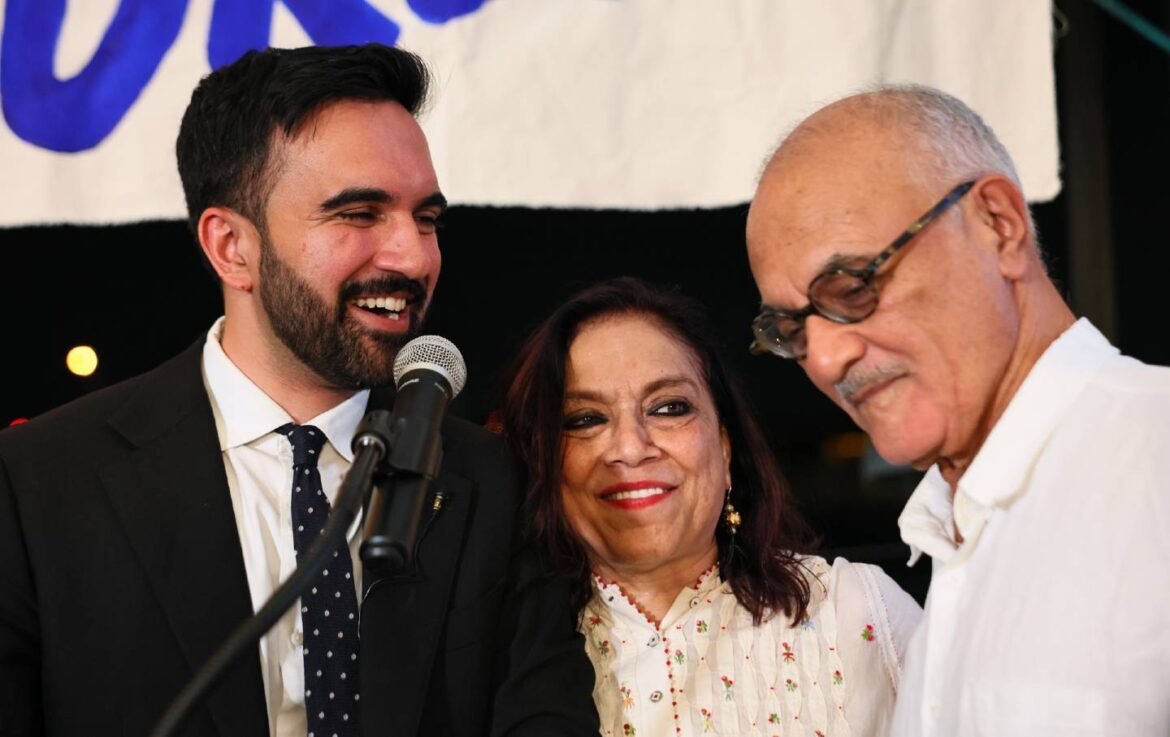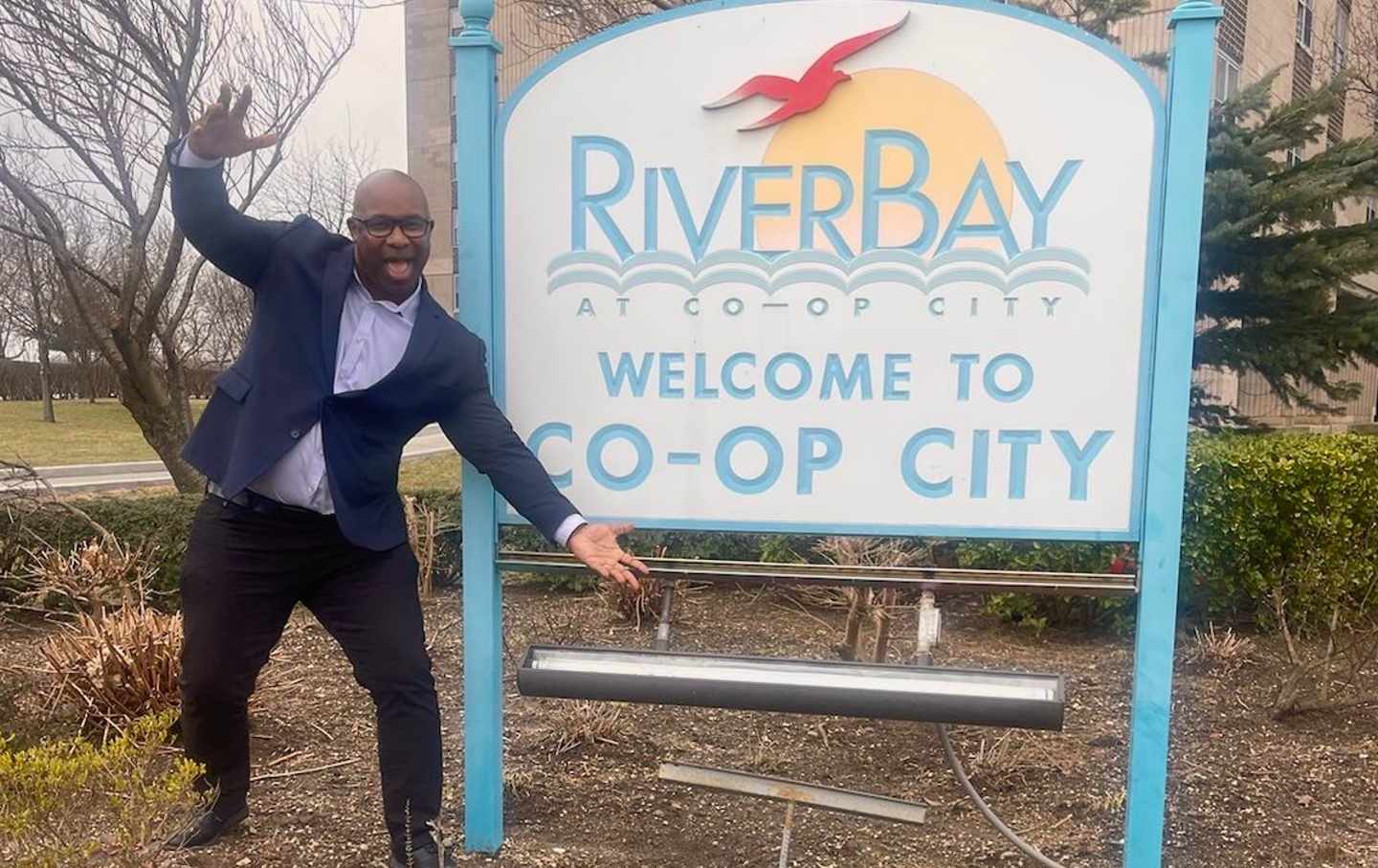Neither Bill Clinton nor Jim Clyburn nor all of Michael Bloomberg’s billions could save Andrew Cuomo from the defeat he deserved.
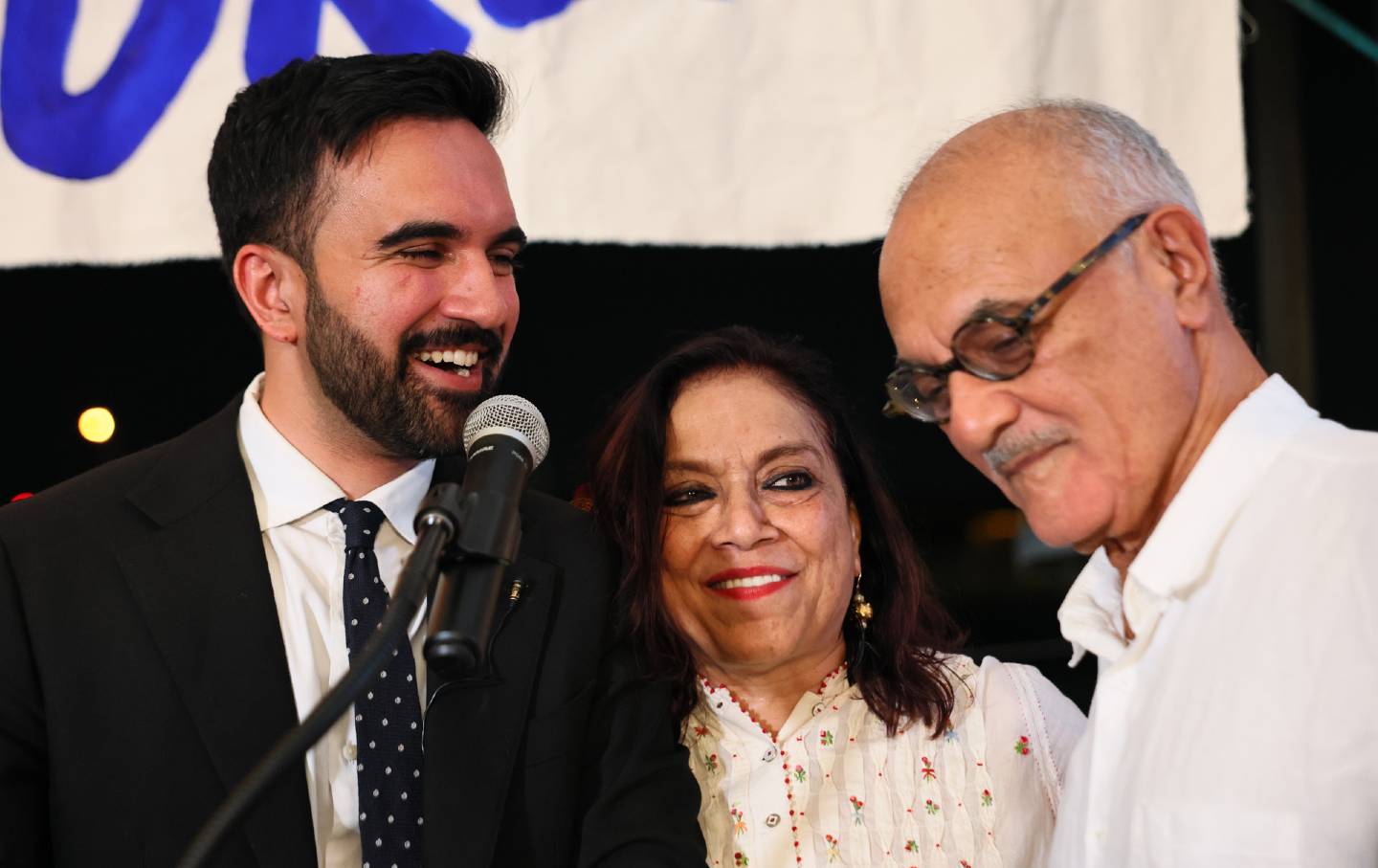
New York is not America, but it’s got, quite literally, every part of America. Zohran Mamdani’s victory over Andrew Cuomo on Tuesday—which although not official until the ranked-choice ballots are counted, makes Mamdani the presumptive Democratic nominee—is not only a historic upset but a historic thrashing. A Democratic dynasty was shattered. Bill Clinton and Jim Clyburn could not save Cuomo. Michael Bloomberg’s millions could not save Cuomo. An endless barrage of furious advertising on the television and radio for weeks on end could not save Cuomo. The New York Times editorial board could not save Cuomo. One city died last night, and another was born.
Mamdani’s victory was stunning in its breadth. He won my home neighborhood of Bay Ridge, where he had, between two local campaigns, personally knocked on thousands of doors. He swept the heavily Latino precincts of Jackson Heights and Corona. He broke Cuomo in South Asian Richmond Hill. Despite the rightward drift of Chinese Democrats, he, as a proud socialist, won large chunks of Bensonhurst and Flushing. The gentrifier belts were his too, of course, but there can be no pablum dispensed about how a leftist won a low-turnout election with the assistance of a small, highly educated slice of the electorate. Mamdani won Brooklyn, Queens, and Manhattan, and even managed to lose conservative Staten Island to Cuomo by only nine points. He won the youth-dominated early vote and crushed Cuomo with the Election Day vote. They voted for Mamdani when it was foggy and unseasonably cool, and they voted for him when it was 104 degrees. This was a realignment election, the death of one coalition and the clear birth of another—a great victory for the counterculture.
Mamdani is now a leader of the American left, along with Alexandria Ocasio-Cortez and Bernie Sanders. Even with the scandal-scarred Eric Adams competing in the general election as an independent—and Cuomo, perhaps, still mulling his own independent run—Mamdani is the heavy favorite to become, at age 34, the youngest mayor of New York in a century. Large labor unions will line up behind him, and he will consolidate Democratic voters against Adams. For all the talk of the city’s overt liberalism, progressives rarely get elected mayor. Bill de Blasio was the exception, not the rule. Mamdani can hark back to the populism of LaGuardia and the youthful reform spirit of Lindsay, but he is sui generis: a young Muslim, a political organizer, a former rapper. For the Democratic Socialists of America, this is a triumph beyond their wildest dreams. AOC won in a single House district. Sanders never won a presidential race. And Mamdani, unlike both of them, is cadre DSA, a proud member who has done a tremendous amount of organizing within the socialist ranks and counted himself as a leader of the socialists in Albany. This victory belongs to them above anyone else.
What will socialist governance, in practice, look like in New York? An ideal would be the “sewer socialism” that was wildly successful in Milwaukee in the first half of the 20th century. Socialists there dominated City Hall, held a House seat, and won many local legislative races because they delivered durable public goods and managed a clean, effective municipality. Milwaukee socialists built a world-class parks system and installed hundreds of drinking fountains. In contrast to Chicago, dominated by Democratic machines, the Milwaukee socialists were remarkably free of scandal. They were notably non-corrupt in an era when cronyism and graft ran rampant. Coming off four years of Eric Adams, who oversaw the most openly corrupt mayoral administration in the modern history of New York, Mamdani will have a chance to win over critics by hiring intelligent, earnest agency bosses and deputy mayors who can make the municipal machinery work again. This is something both de Blasio and Bloomberg, for all their flaws, did very well. Between them, they appointed the best parks and transportation commissioners in America, and de Blasio empowered well-regarded bureaucrats like Tony Shorris and Kathryn Garcia to oversee large swaths of the government. Mamdani will not struggle to attract talent, because there are a great number of ambitious, policy-oriented liberals and leftists who would want to work for an administration that seems so wide open. This is what the Cuomo backers never understood: The ex-governor is a notorious micromanager and publicity hound and will crush anyone who seems like a threat to him. He chased Andy Byford out of the MTA. Mamdani, conversely, may be able to find a Byford-like technocrat to oversee his DOT.
A wise possible move, likely already under discussion, would be to appoint Brad Lander to a top position in the new administration. Lander, who finished third, cross-endorsed with Mamdani and would be the sort of technocrat the young socialist may need to help oversee his government. Lander was the city comptroller for four years and, before that, served in the City Council for 12 years, authoring numerous pieces of progressive legislation. As a first deputy mayor, Lander could reassure the wide swath of New Yorkers who have questioned Mamdani’s experience and qualifications.
Because this will be the test for the American left. Sanders and Ocasio-Cortez have it easy; they are legislators, in charge of relatively small staffs. In a sprawling federal government, they have few tangible responsibilities. They don’t have to visit the families of slain cops or rush to the sites of deadly gas explosions. They don’t have to manage the demands of progressives in Greenpoint and Orthodox Jews in Midwood. Mamdani may, come January, have 8 million constituents. The mayor of New York is both a glorious and brutal perch—blamed for forces beyond its remit and often tasked with the impossible. Outside of the White House, the mayor faces down America’s largest press corps. Many of these media outlets will be skeptical or outright hostile to a young socialist mayor. The New York Post will treat Mamdani as its greatest foil; it longed for Obama to be a Muslim socialist, but now has found the genuine article. Any minor crime spike will be treated, by the tabloids and broadcast television, as a world-historical crisis. Any governing slip will be regarded as evidence of his profound inexperience.
The power elite despises him, and will find any excuse, in the media or elsewhere, to cut down his mayoralty. This will be a war. Even in the general election, a super PAC might form to try to resuscitate Adams. Adams is calling up the wealthiest men in the world right now and telling them he is all that stands between Mamdani and City Hall.
At some point, the hyperbole will die down. Mamdani is pro-Palestine, but will strain to avoid foreign policy discussions as mayor. He did not run a mayoral campaign on BDS or anti-Zionism. He did not run a campaign on defunding the police, either. New York Jews will be safe under Mamdani, because he is a savvy politician who understands he now must deliver for them in some fashion. He will take their meetings. The ultra-wealthy who whine about hiked corporate tax rates must understand that taxes are up to the governor, not the mayor, and Kathy Hochul has already shot down the idea.
The good news for Mamdani is that New York’s municipal budget is $115 billion, and a nimble, aggressive mayor can find funding in it for a few city-run grocery stores and, with help from the state, a significant expansion of childcare. Free buses may cost a billion at best, which is small change for the MTA. Mamdani’s government could always kick cash into that initiative. Savings can be found by cutting out patronage within the city government and reforming the contracting process. Mamdani will have major decisions to make on education and policing—will Jessica Tisch remain as NYPD commissioner or would she choose to stay?—and he will encounter, as all executives do, significant trade-offs as he weighs what policies to pursue. Since he cannot, as a mayor, abolish capitalism, the rich will do just fine. Landlords who own rent-stabilized buildings may have to content themselves with slightly smaller profit margins. If they hate landlording so much, give tenants the opportunity to collectively purchase the buildings and become homeowners. The city can certainly help them do this.
On the national stage, there is much chatter about what this all means. Does it point the way forward for progressives? Is the Democratic Party shifting left? Will Republicans now have a new bogeyman to bash Democrats with, a brown man with a strange name? I am not, for now, very interested in those questions. But for anyone who wants to win an election—conservative, centrist, leftist, whatever—there are very simple lessons that Mamdani offers.
We are, first and foremost, in an anti-institutional, neoromantic age, and voters are deeply dissatisfied with the options before them. There is a staleness to much of what percolates at the top, in establishment and mainstream organisms. Donald Trump found success in subverting the old order, and the left never hunted up an effective counter. Authenticity is the watchword, and Mamdani has much of it. He is a happy warrior. It is not that he used social media; it’s that, in that social media, a viewer found both a man they wanted to spend time with and a man they believed in fully, worth thinking about in their waking hours—and a man, even, who was above them, who was deeply articulate and wore a suit and tie. A voter wants to look up, not down.
In terms of brute politics, Mamdani made all the right moves, stressing economics and dodging the culture war. He met voters where they were, and his canvassers, 40,000 in number, met them at their doors. He had a message and stuck to it. The more than 400,000 Democrats who voted for Mamdani voted, in fact, for Mamdani, and not merely against Cuomo. It was an affirmative choice, a thrilling leap into the unknown. Cuomo, meanwhile, staggered forward like the dazed, entitled goliath he was, and when he fell he toppled over mighty quick. His obituary is written, and it won’t be revised. As Mamdani earned his fate, Cuomo earned his. Sometimes, justice really does get served.
Every day, The Nation exposes the administration’s unchecked and reckless abuses of power through clear-eyed, uncompromising independent journalism—the kind of journalism that holds the powerful to account and helps build alternatives to the world we live in now.
We have just the right people to confront this moment. Speaking on Democracy Now!, Nation DC Bureau chief Chris Lehmann translated the complex terms of the budget bill into the plain truth, describing it as “the single largest upward redistribution of wealth effectuated by any piece of legislation in our history.” In the pages of the June print issue and on The Nation Podcast, Jacob Silverman dove deep into how crypto has captured American campaign finance, revealing that it was the top donor in the 2024 elections as an industry and won nearly every race it supported.
This is all in addition to The Nation’s exceptional coverage of matters of war and peace, the courts, reproductive justice, climate, immigration, healthcare, and much more.
Our 160-year history of sounding the alarm on presidential overreach and the persecution of dissent has prepared us for this moment. 2025 marks a new chapter in this history, and we need you to be part of it.
We’re aiming to raise $20,000 during our June Fundraising Campaign to fund our change-making reporting and analysis. Stand for bold, independent journalism and donate to support The Nation today.
Onward,
Katrina vanden Heuvel
Publisher, The Nation
More from
Ross Barkan
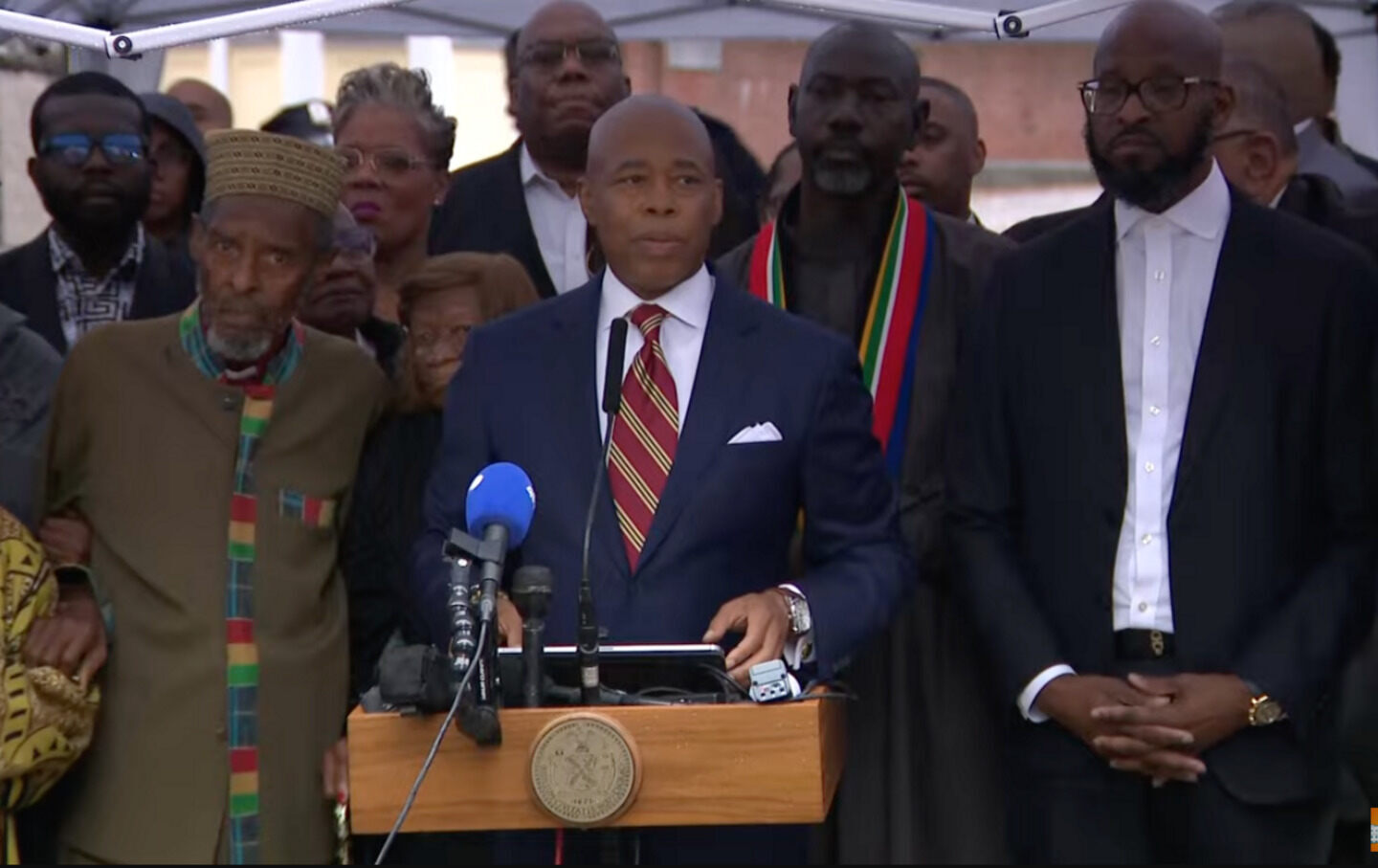
The Southern District has indicted New York City’s mayor. But anyone who claims to be certain of the trajectory of the next six months is lying to you.
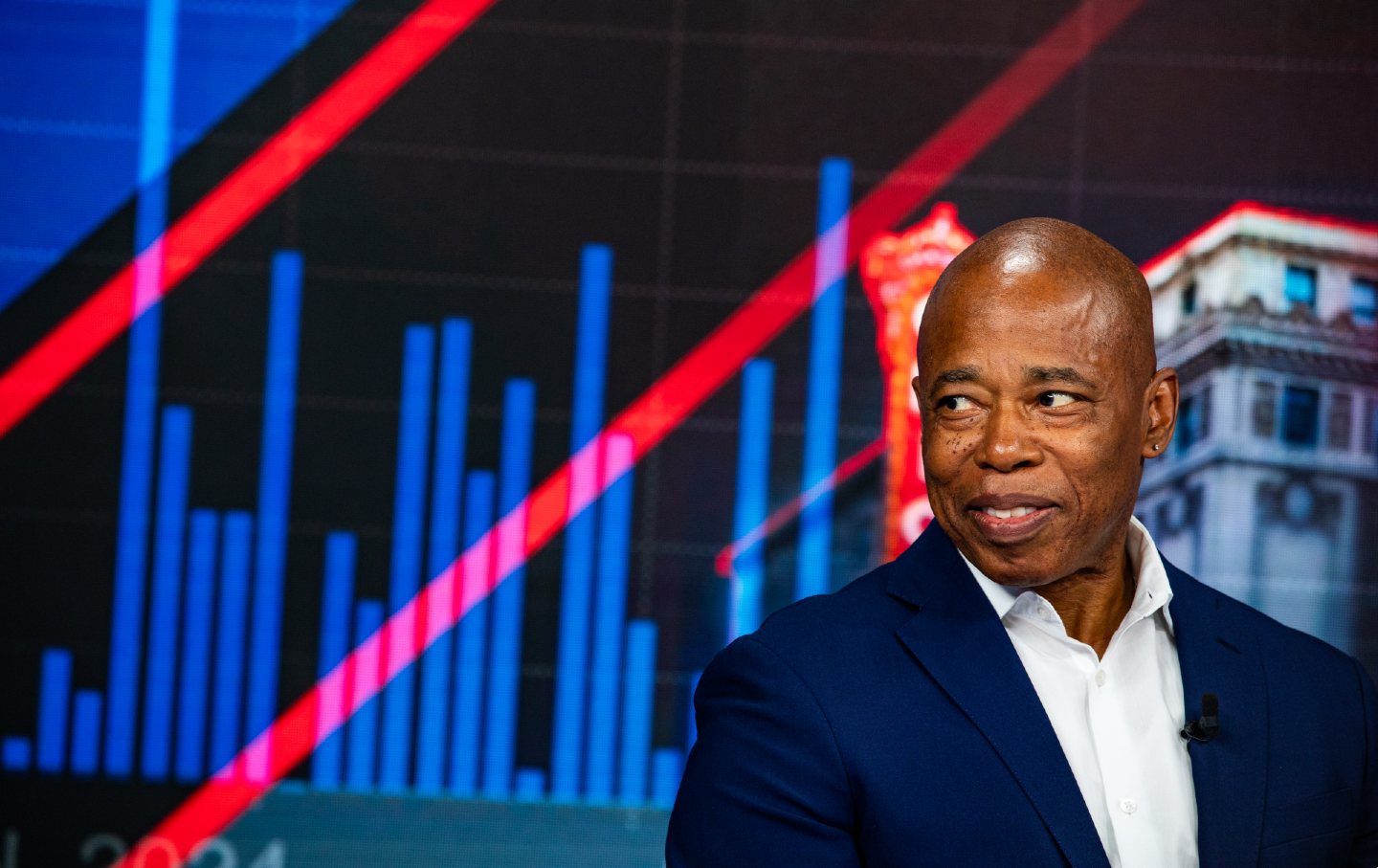
Losing one police commissioner might be merely careless. But losing two—with a number of federal investigations targeting the mayor’s inner circle—has encouraged challengers.

The US left can only dream of Democrats’ having five years ahead of interrupted power—and control of Congress—with the GOP, like the Tories, driven far to the margins for a d…

Or just until after the election? Either way, she’s blown a $15 billion hole in the MTA budget, leaving New Yorkers with overcrowded streets, filthy air, and an underfunded subwa…
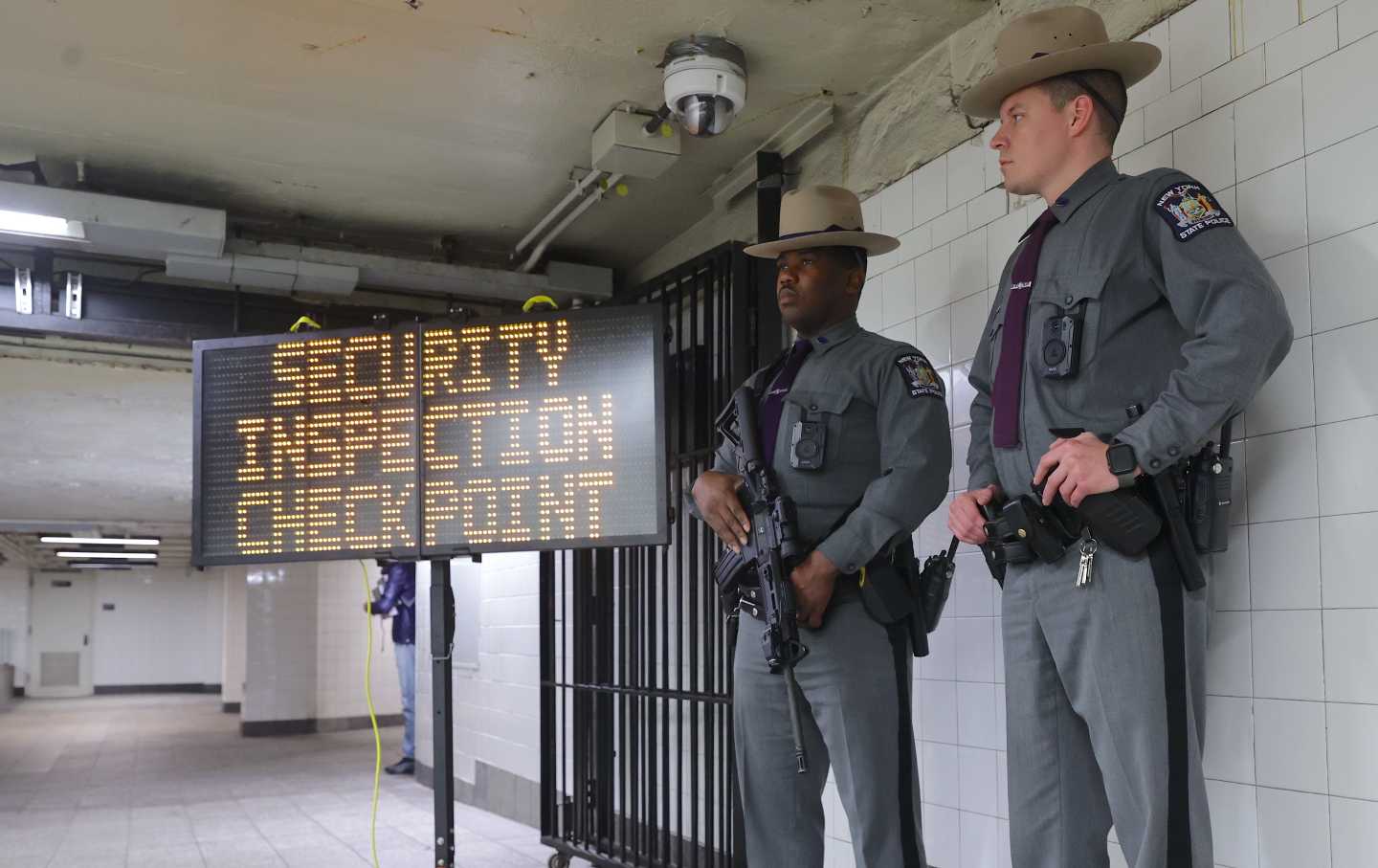
Kathy Hochul made a grave miscalculation by further militarizing a city she doesn’t live in or understand.
